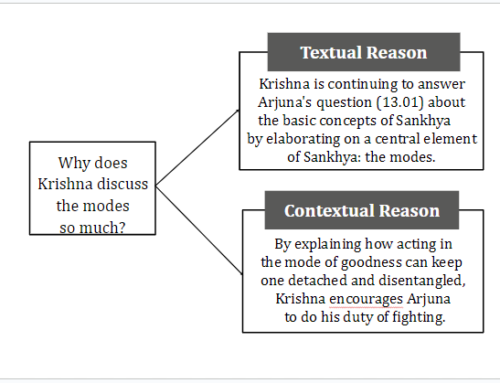To a person on the North Pole, the equator is towards the south. But to a person on the South Pole, the same equator is towards the north.
Variation in observation is caused by not just physical location but also psychological disposition. How we observe things is affected by where we are internally positioned, that is, in which mode of material nature we are situated. Gita wisdom explains that the modes are subtle forces that shape the interaction between consciousness and matter, that is, between us and the things around us. The Bhagavad-gita (18.19) indicates that knowledge, action and actor – the primary components of any interaction between us and the world – can all be categorized within the three modes.
When the mode influencing us changes, we may internally shift from the North Pole to the South Pole while looking at the same object. Thus, while in goodness, we will see others as having a universal spiritual essence and understand that people everywhere are essentially similar to us. But while in ignorance, we will see fragmentally, obsessing over people’s race or religion or nationality, and perpetuate sectarian stereotypes such as “All ******* are terrorists.”
The modes affect how we see sense objects too. While in goodness, we will see enjoyment of such objects as the path to misery and see the initial pleasure as a deluding trap. But in passion, we will see those objects as sources of irresistible enjoyment and rationalize whatever later misery might come as something that’s just a part of the package.
Instead of immediately acting on whatever we see, we need to pause and introspect where we are seeing from. When we complement such introspection with philosophical insight and devotional practice, we will be able to purify our perceptions, making them harmonious with our life’s higher spiritual purposes.
Explanation of article:
Podcast:



Leave A Comment